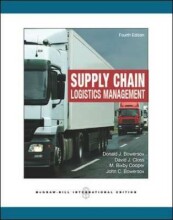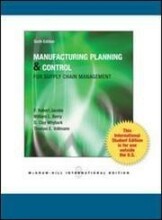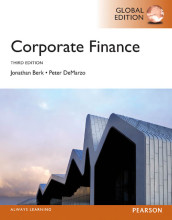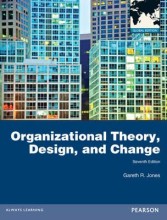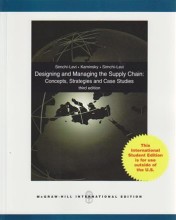Purchasing, corporate social responsibility and integrity - Class 12 & 13 additional notes
21 important questions on Purchasing, corporate social responsibility and integrity - Class 12 & 13 additional notes
Indicate whether the following statement is true or false, and briefly justify your choice: In negotiations betwee a buying company and one of its suppliers, it is considerable to be acceptable to share information obtainted from other suppliers
Define what negotation is and why it is important to do as a purchaser.
- Time - consuming process that requires extensive planning and a commitment of resources --> 90% involves preparation, not execution.
Give the five phases for negotiation (negotiating framework)
2. Determine if negotation is required
3. Plan for the negotation
4. Conduct the negotiation
5. Execute the agreement
(6) E.g. evaluate if supplier is meeting its contractual agreements.
- Higher grades + faster learning
- Never study anything twice
- 100% sure, 100% understanding
How are effective negotiators behaving?
information challenges their original position
• View issues independently
• Establish lower & upper ranges for each major issue
• Explore almost twice as many options per issue compared
with average negotiators
• Make almost four times the comments about the common
ground (rather than on differences) between parties
• Give fewer reasons for the arguments they advance (too
many supporting reasons can dilute an argument)
• Make fewer counterproposals (i.e. should not compromise
too much)
Describe power in negotiations
person’s or organization’s behavior
• Individuals and organizations bring
different (positive and/or negative!) sources
of power to the negotiating table
• Different sources of power can have
varying short and longer-term effects on a
negotiation and a relationship
Why would companies be ethical?
• Because they feel it is right to do so (moral
standards)
• Because it pays off (economic benefits)
What types of less ethical behavior consists?
• Personal Buying: Purchasing for personal needs,
using company cont(r)acts
• Accepting Supplier Favors: may affect purchaser’s
judgment in selection process
• Sharp Practices
• Financial Conflicts of Interest: e.g. having direct
financial interest in a supplier
Give some examples (practices) of less ethical behavior in the supply chain.
• Exaggerating problems
• Requesting bids from unqualified suppliers
• Gaining information unfairly
• Sharing information on competitive bids
• Not compensating a supplier for design work
• Taking unfair advantage of financial situation
• Lying or misleading
What are solutions for supporting ethical behavior?
conducts; example NEVI code, book p.372-373)
• Top management commitment (ethical behavior of
top executives as “example”)
• Closer buyer-seller relationship (see for example
of Unilever’s key suppliers, “Partners to Win”)
• Ethical training (e.g. by using role plays)
• Internal reporting of unethical behavior & also
encourage suppliers to report unethical actions
• Preventive measures (e.g. by rotating purchasers
among different commodity groups)
What are dynamics and challenges in global supply chains?
- Increasing focus on chain optimization --> relay race as metaphor
- Role supply management: selection, management, monitoring and development of suppliers --> increaslingly important due to ongoing outsourcing!
- Performance pressure cooker: faster, better, cheaper, ….
- And more "challenges": globalization, ICT, demanding customers & growing attention for societal issues.
We could use our suppliers as a stimulator to optimize the inbound processes to be more sustainable.
What is a reason for joining the Down Jones sustainability index? What's the trade-off?
Down jones sustainability index is becoming more important. Companies see this as a competition to be on number 1 in this index. The side effect they indeed take measures. The point is: the Netherlands is doing quite well. This doesn’t mean these companies are perfect. Unilever is also criticized à they use a lot of palmoil of rain forests in their products. At the same time they are also thriving economical aspects. So it’s a balance between economical vs sustainable aspects.
Define Sustainable Supply Management (SSM)
This definition is pretty well in essence, however there are a lot of definitions, which is a problem.
It happens because there are at least 7 synonyms about “purchasing” alone. Also 6 or 7 synonyms for term “sustainable”. If you multiply this, you will have 64 different definitions.
Why should companies do sustainable supply management?
What we often see is a reaction to external forces. Mostly triggered by companies like wakkerdier, greenpeace, WNF, etc. You don’t wanna be in the news as a badass sustainable company.
In implementing, you seek for opportunities. Not governmental companies (NGOs) are for sure not the only one triggering companies to be more sustainable.
Institutional developments like labels do have some issue. What kind of issue?
Describe some academic developments of sustainable supply management
Which four eras of embedding purchasing supply management in strategic management theory consists?
1.Strategic planning & marketing (e.g. BCG)
2.Competitive strategy (e.g. Porter)
3.Innovation strategy & competence management (e.g. RBV of firm, ITO class)
4.From internal to external resource management (e.g. stakeholder theory)
Why is less ethical purchasing behaviour in general risky? Motivate your answer. (formal exam question 2018)
Basically, there are three types of risks associated with unethical beha viour:
- there may be legal penalties (e.g. if it is seen as corruption)
- the purchaser’s personal, professional reputation may be at stake, thus limiting career opportunities
- the company’s reputation could be at risk (e .g. resulting in customer “strikes”)
One example of an ethical dilemma is the following situation, ‘you’ being the purchasing manager:
‘You are about to assign a huge order to one of your company’s suppliers with a stock exchange quotation. A couple of days before doing so you buy a package of shares from that supplier.’
What types of less ethical purchasing behaviour exist? Your answer should explicitly state to what type the above-mentioned example belongs.
The following types of unethical behaviour exist:
- reciprocity
- personal buying
- accepting supplier favours
- sharp practices
- financial conflicts of interests
The example appears to belong to the type ‘financial conflicts of interests’ since the purchasing manager uses inside information (a huge order) to obtain financial benefits him/herself.
Discuss the link between ethical purchasing responsibilities and Corporate Social Responsibility (CSR). (formal exam question 2018)
The book describes the well- known pyramid model of Carroll, also discussed in class. In this model, ethical responsibilities build on a basis of economic and legal responsibilities. The top of this pyramid is
formed by responsibilities to be a good corporate citizen, often operationalized in the form of the three P’s (people, planet, profit). In this sense, the Carroll implies that ethical responsibilities form a sort of
prerequisite for a company’s CSR efforts.
Discuss the potential importance of relationship quality (RQ) in stimulating ethical purchasing behaviour.
Your answer should contain a brief description of the main RQ elements. (formal exam question 2018)
The main RQ elements are trust, commitment and (economic and non-economic) satisfaction.
Since ethical behaviour doesn’t “stop” at the company borders, from a purchasing perspective it is important that suppliers also conform to codes of conduct set by the buying company. This conformance
is arguably facilitated by higher degrees of the RQ elements trust & commitment.
Discuss at least three measures that can be taken to support ethical behaviour of purchasing managers. (formal exam question 2018)
- development of codes of conducts (internally and/or for suppliers)
- ethical training programmes (e.g . via role plays)
- top management commitment (”example behaviour” of top executives)
- reporting of cases of unethical behaviour (and a ssociated sanctions)
- preventive measures (e.g. by rotating purchasing staff)
The question on the page originate from the summary of the following study material:
- A unique study and practice tool
- Never study anything twice again
- Get the grades you hope for
- 100% sure, 100% understanding




















